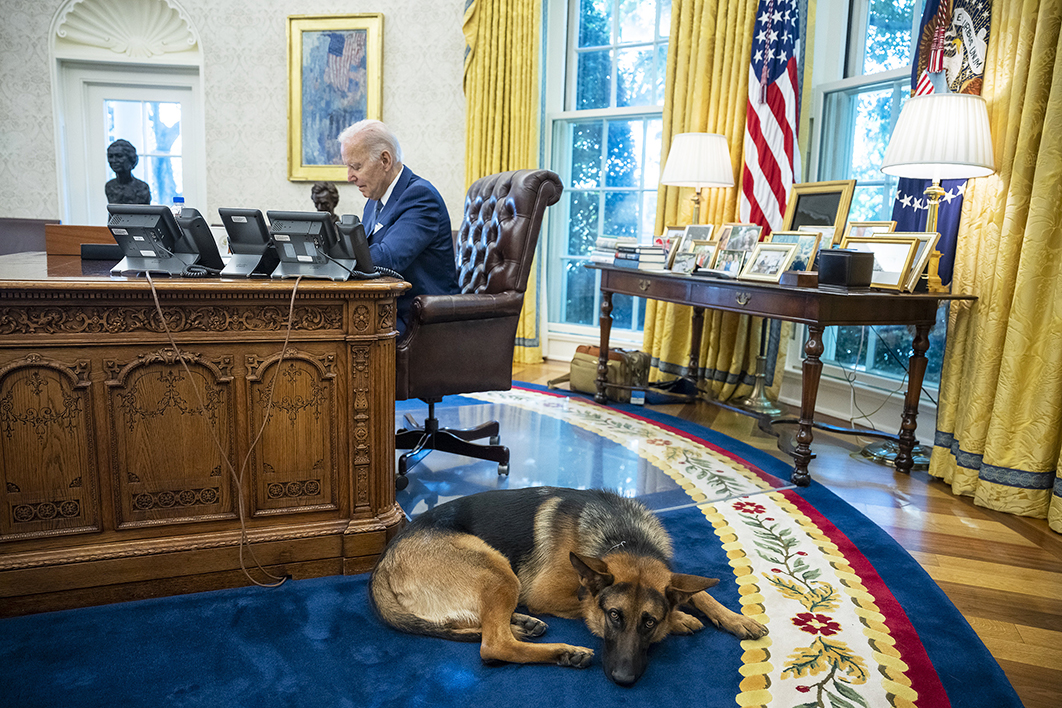In the concluding notes of The Last Politician, his absorbing work of political reportage, Franklin Foer offers a candid assessment of the forty-sixth president of the United States:
The great thing about Joe Biden as a subject is his verbosity. He does a terrible job at suppressing his internal monologue. His staff and friends have a clear understanding of his mind, because they are exposed to so much of it.
Biden’s tendency to bloviate — a word that has failed to establish itself this side of the Pacific despite favourable conditions — and his habit of veering dangerously off-script at critical moments are the stuff of legend. His ascent to the presidency drew a collective eye roll among some Democrats, but also the hope that his ordinariness would bring about a period of dull but competent politics. The nation might at last have a chance to catch its breath and lick its wounds.
Despite that hope, tedium has been in short supply. Beginning shortly after the Capitol riot, his administration had to cope with the continuing Covid crisis, the withdrawal from Afghanistan and the Russian invasion of Ukraine, not to mention punishing domestic battles over immigration, inflation and the overturning of Roe v. Wade.
The Last Politician leads the reader through the first two years of Biden’s presidency with an occasionally breathless immediacy. Foer’s liberal use of fabricated dialogue and rapid shifts of perspective among a large cast of key players enliven his book, which has become a bestseller in the United States. The product of around 300 interviews, it offers West Wing–style personal conflict and colour, and the same semi-heroic portrayal of the sleep-deprived governing elite.
Foer conveys the limitations and quirks of his protagonists without falling into easy cynicism or caricature. Criticism of politicians is muted except when their wrongdoing is blatant, the petulant obstructionism of the Trump administration during the transition of power being a case in point. The depiction of Joe Manchin, the senator for West Virginia who repeatedly held his party hostage as the fiftieth vote in the Senate, might have been scathing. Instead, Foer offers a humanising sketch of a self-important geezer with one eye on his legacy and another on his easily bruised sense of honour.
Biden is drawn in an equally generous light. He can be short-tempered when challenged but swallows his pride and breaks bread to bring legislative combatants back to the negotiating table. He is occasionally caught flat-footed, notably in response to the Supreme Court’s dismantling of abortion rights, but quickly finds his way back to clarity. His oratorical aspirations are undermined by faux pas, as when an off-script remark suggested he was seeking regime change in Russia. He owns his administration’s failures in the chaotic evacuation from Kabul and steers a steady course between his party’s progressive wing and what the electorate will tolerate.
To Foer, Biden has been consistently underestimated, partly for reasons of social class. As a “lunch-pail cornball” he lacks Obama’s Ivy League lustre but can arguably connect to people more authentically. (Biden told a friend that his former boss couldn’t even say “fuck you” properly.) For all his chronic “indiscipline and imprecision,” Biden’s term has seen significant achievements. He stood firm against Putin, helped to corral European states in defence of Ukraine, began to restore America’s global reputation as a responsible power, and averted the expected Republican “red wave” in the midterm elections.
The domestic achievement that draws the most attention from Foer but is less well known in Australia is the passing of the Inflation Reduction Act, which provides a transformational boost to solar and wind energy and other green technologies. The act’s path was littered with obstacles, and Foer credits Biden with the perspective, farsightedness, persistence and willingness to compromise that made it possible.
In praising these geezerly virtues Foer offers a partial and unconvincing defence of American gerontocracy. Age brings wisdom, but not reliably. Biden may have a rare and insufficiently acknowledged gift for getting things done within the political institutions he loves, but The Last Politician reveals those institutions to be open to abuse precisely because of their reliance on the transactional deal-making at which Biden excels.
Two senators can meet secretly to carve hundreds of billions of dollars from a piece of legislation to meet one senator’s idiosyncratic demands. Vast, nation-shaping agreements can be made on a houseboat over beer and pasta. Deals can be undone by perceived slights to a congressman’s honour. War efforts can be endangered because the leader of an embattled country’s tweets convey insufficient gratitude to his American funders. Members of Congress can be made to demonstrate their trustworthiness by looking one another in the eye.
The denizens of Washington can be divided into hacks and wonks, Foer writes. “You were either a political animal or a policy nerd.” Biden, he says, is an “old hack,” one of the last, wisest exponents of the dying art of congressional horsetrading. The Last Politician mounts a convincing case for Biden’s presidential achievements, but it is less clear that we should mourn the passing of his generation’s style of politics. •
The Last Politician: Inside Joe Biden’s White House and the Struggle for America’s Future
By Franklin Foer | Penguin Press | US$30 | 432 pages




